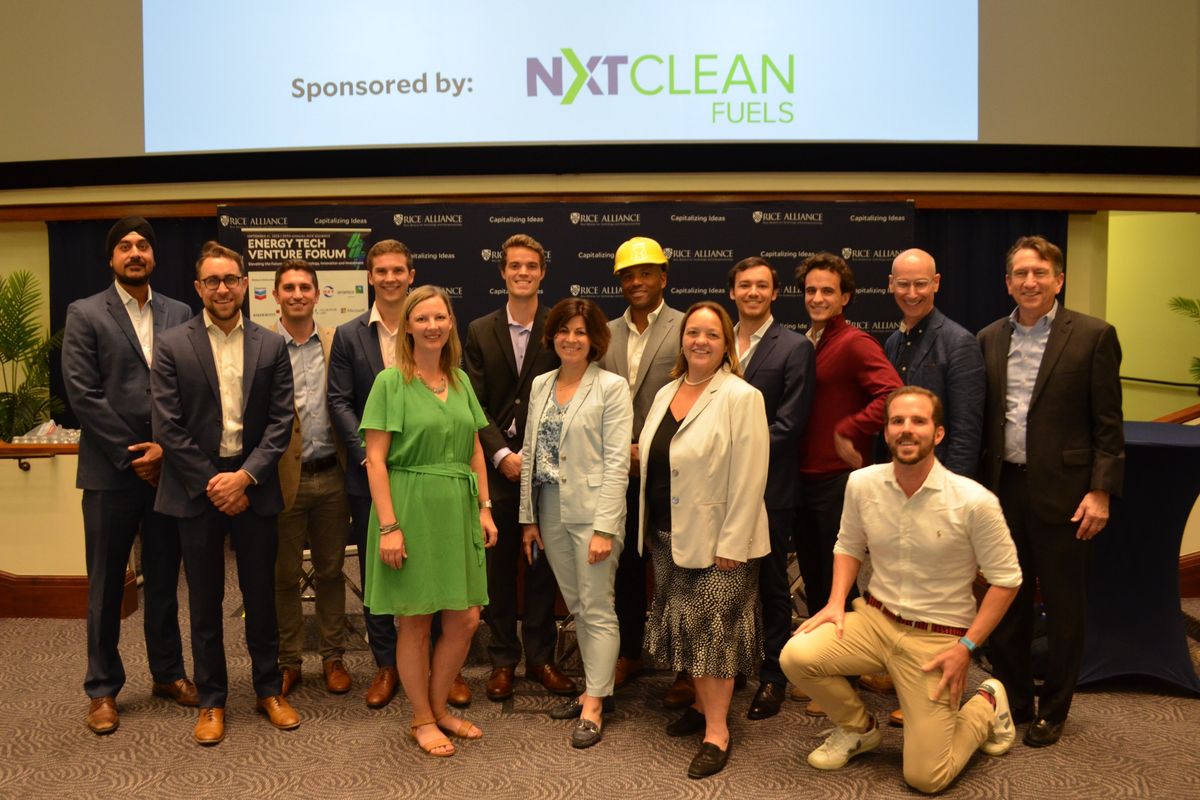8+ can't-miss events at Houston Energy and Climate Startup Week 2025
where to be
Editor's note: This article may be updated to include additional events.
The second annual Houston Energy and Climate Startup Week is less than a month away—and the calendar of events is taking shape.
The series of panels, happy hours and pitch days will take place Sept. 15-19. The Ion District will host many of the week's events.
Here are the details on some of the can't-miss events of the week:
Houston Energy & Climate Startup Week Kickoff Panel and Block Party
Join fellow innovators, founders, investors and energy leaders at this kick-off event hosted by The Ion and HETI, which will feature brief welcome remarks, a panel discussion and networking, followed by a block party on the Ion Plaza.
This event is Monday, Sept. 15, at 4 p.m. at The Ion. Register here.
Energytech Nexus Pilotathon
Grab breakfast and take in keynotes and panels by leaders from New Climate Ventures, V1 Climate, Halliburton, Energy Tech Nexus and many others. Then hear pitches during the Pilotathon, which targets startups ready to implement pilot projects within six to 12 months.
This event is Tuesday, Sept. 16, from 8 a.m.-5 p.m. at GreenStreet. Get tickets here.
Meet the Activate Houston Cohort 2025 Fellows
Meet Activate's latest cohort, which was named this summer, and also learn more about its 2024 group.
This event is Tuesday, Sept. 16, at 5 p.m. at the Ion. Register here.
New Climate Ventures Afterparty
Enjoy music, networking and carbon-negative spirits at Axelrad. Houston startups Quaise Energy, Solidec, Dimensional Energy, Rheom Materials, and Active Surfaces will also be on-site.
This event is Tuesday, Sept. 16, from 6:30-9:30 p.m. at Axelrad. Register here.
Green ICU Conference: Sustainability in Health Care for a Healthier Future
Houston Methodist will host its inaugural Green ICU Conference during Houston Energy & Climate Week. The conference is designed to bring together healthcare professionals, industry leaders, policymakers and innovators to explore solutions for building a more sustainable healthcare system.
This event is Wednesday, Sept. 17. from 8 a.m.-3 p.m. at TMC Helix Park. Register here.
Rice Alliance Energy Tech Venture Forum
Hear from clean energy startups from nine countries and 19 states at the 22nd annual Energy Tech Venture Forum. The 12 companies that were named to Class 5 of the Rice Alliance Clean Energy Accelerator will present during Demo Day to wrap up their 10-week program. Apart from pitches, this event will also host keynotes from Arjun Murti, partner of energy macro and policy at Veriten, and Susan Schofer, partner at HAX and chief science officer at SOSV. Panels will focus on corporate innovation and institutional venture capital.
This event is Thursday, Sept. 18, from 7:30 a.m.-5 p.m. at Rice University’s Jones Graduate School of Business. Register here.
Shell STCH Open House
Get a behind-the-scenes look at how Shell is leveraging open innovation to scale climate tech. The open house will spotlight two Houston-based startups—Mars Materials, which converts captured CO2 into acrylonitrile, and DexMat, which transforms methane into high-performance carbon nanotube fibers.
This event is Thursday, Sept. 18, from 8:30 a.m.-12:15 p.m. at Shell Technology Center. Register here.
ACCEL Year 3 Showcase
Celebrate Advancing Climatetech and Clean Energy Leaders Program, or ACCEL, an accelerator program for startups led by BIPOC and other underrepresented founders from Greentown Labs and Browning the Green Space. Two Houston companies and one from Austin are among the eight startups to be named to the 2025 group. Hear startup pitches from the cohort, and from Greentown's Head of Houston, Lawson Gow, CEO Georgina Campbell Flatter and others.
This event is Thursday, Sept. 18, from 5-8 p.m. at Greentown Labs. Get tickets here.
Halliburton Labs Finalists Pitch Day
Hear from Halliburton Labs' latest cohort of entrepreneurs. The incubator aims to advance the companies’ commercialization with support from Halliburton's network, facilities and financing opportunities. Its latest cohort includes one company from Texas.
This event is Friday, Sept. 19, from 8 a.m.-noon at The Ion. Register here.
Chevron Energy Innovation Finals
The University of Houston will present the 4th Annual Chevron Innovation Commercialization Competition.
The event is Friday, Sept. 19, from 10 a.m.-1:30 p.m. at the University of Houston. Register here.
Houston Energy and Climate Startup Week was founded in 2024 by Rice Alliance for Technology and Entrepreneurship, Halliburton Labs, Greentown Labs, Houston Energy Transition Initiative (HETI), Digital Wildcatters and Activate.
Last year, Houston Energy and Climate Startup Week welcomed more than 2,000 attendees, investors and industry leaders to more than 30 events. It featured more than 100 speakers and showcased more than 125 startups.
- Houston cleantech accelerator names 12 startups to 2025 cohort ›
- Rice Alliance names participants in 22th annual energy forum ›
- 10+ must-attend Houston energy transition events happening in Q3 2025 ›
- Houston Energy and Climate Startup Week announces 2025 dates, key events ›
- Energy Tech Nexus names startups to pitch at Houston Pilotathon - Energy Capital ›
- Rice Alliance Energy Tech Venture Forum names most-promising startups - Energy Capital ›






 Ten companies from around the world were named as most promising. Photo courtesy of Rice
Ten companies from around the world were named as most promising. Photo courtesy of Rice